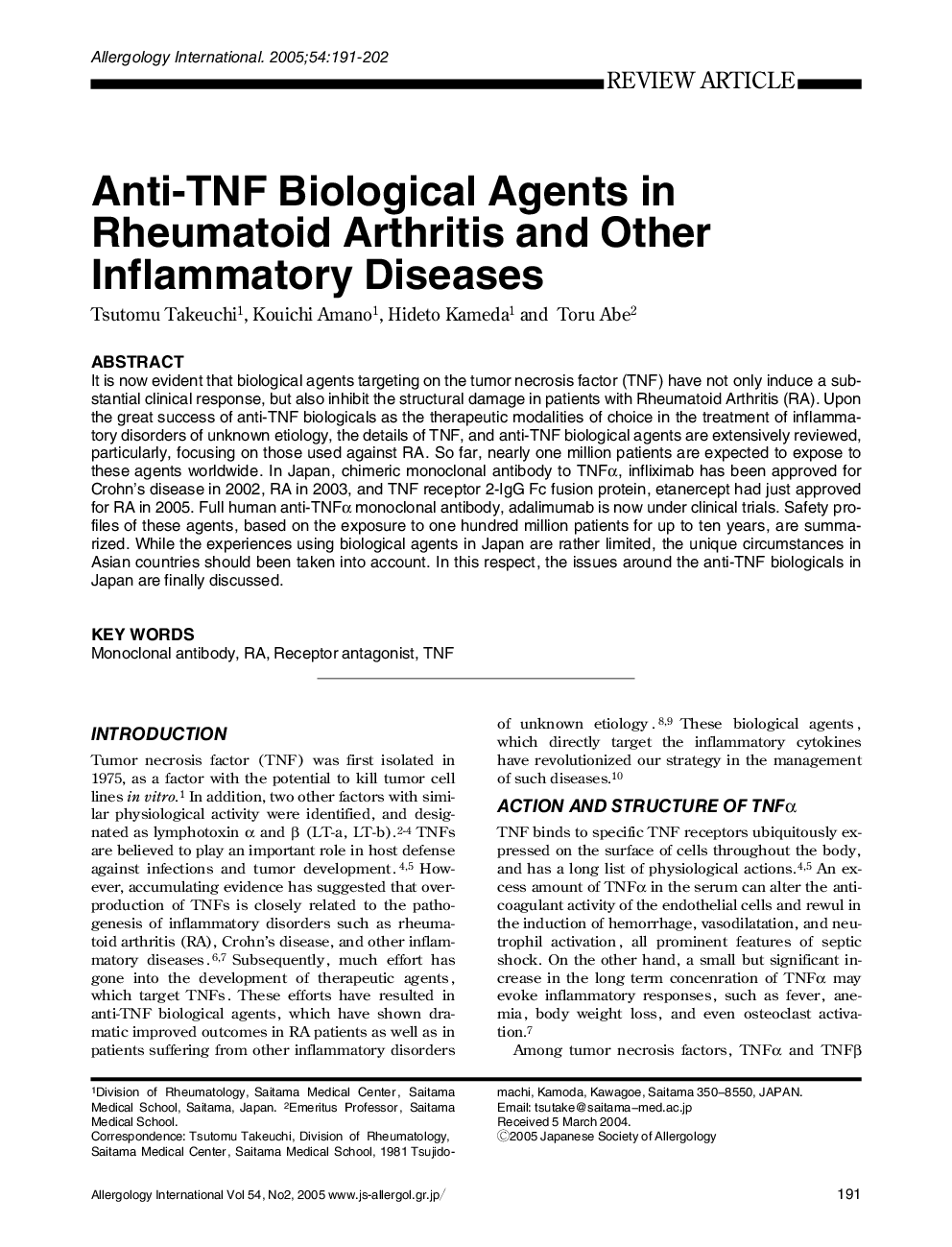| Article ID | Journal | Published Year | Pages | File Type |
|---|---|---|---|---|
| 9260931 | Allergology International | 2005 | 12 Pages |
Abstract
It is now evident that biological agents targeting on the tumor necrosis factor (TNF) have not only induce a substantial clinical response, but also inhibit the structural damage in patients with Rheumatoid Arthritis (RA). Upon the great success of anti-TNF biologicals as the therapeutic modalities of choice in the treatment of inflammatory disorders of unknown etiology, the details of TNF, and anti-TNF biological agents are extensively reviewed, particularly, focusing on those used against RA. So far, nearly one million patients are expected to expose to these agents worldwide. In Japan, chimeric monoclonal antibody to TNFα, infliximab has been approved for Crohn's disease in 2002, RA in 2003, and TNF receptor 2-IgG Fc fusion protein, etanercept had just approved for RA in 2005. Full human anti-TNFα monoclonal antibody, adalimumab is now under clinical trials. Safety profiles of these agents, based on the exposure to one hundred million patients for up to ten years, are summarized. While the experiences using biological agents in Japan are rather limited, the unique circumstances in Asian countries should been taken into account. In this respect, the issues around the anti-TNF biologicals in Japan are finally discussed.
Related Topics
Health Sciences
Medicine and Dentistry
Immunology, Allergology and Rheumatology
Authors
Tsutomu Takeuchi, Kouichi Amano, Hideto Kameda, Toru Abe,
